
Rising Damp is going to get us all!
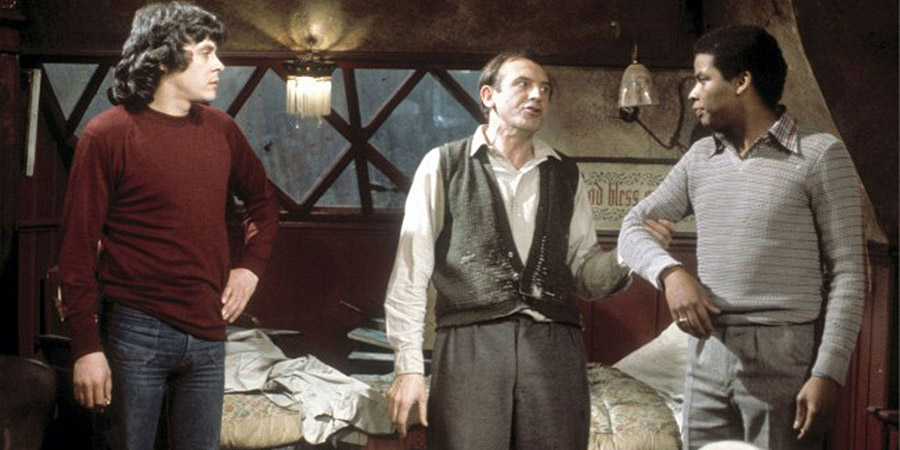
It all started in Leamington Spa.
Eric Chappell had always dreamed of being a writer. In 1969 he was living in the town, working as an auditor for the East Midlands Electricity board. It was there, while flicking through the local newspaper during his lunch break, that he chanced upon an item that would change not only his life but which would transform the comedy landscape forever.
The story in the paper was a simple one: a young man had conned a hotel into letting him stay there for free by pretending to be an African prince. The story amused and inspired Chappell and before long, he was writing a play. The premise of what became The Banana Box had already evolved dramatically by the time it reached the stage. Chappell knew nothing about hotels so imagined instead a downmarket letting house in an unspecified northern university town, whose landlord, a sleazy character who Chappell named "Rooksby", would take the central role.
The play got good notices but never attracted a large audience. An early production saw Wilfrid Brambell, better known to the world as Old Man Steptoe, playing the landlord. After a two-year hiatus, a 1973 revival with a new cast saw the experienced stage actor Leonard Rossiter receive rave reviews for his performance as Rooksby. He was joined by Don Warrington, a young Trinidad-born actor fresh out of drama school to play Philip Smith, the supposed African prince, while RSC actress Frances de la Tour appeared as another tenant, Miss Jones. A note of glamour was added by the casting of Paul Jones, the onetime lead singer of Sixties group Manfred Mann as Noel Parker, another one of Rooksby's luckless residents.
Rossiter initially balked when it was suggested that the play might work better as a TV sitcom, but, growing used to the idea, he keenly encouraged Eric Chappell (who was concerned about his workload) to take up Yorkshire Television's invitation to write a pilot.
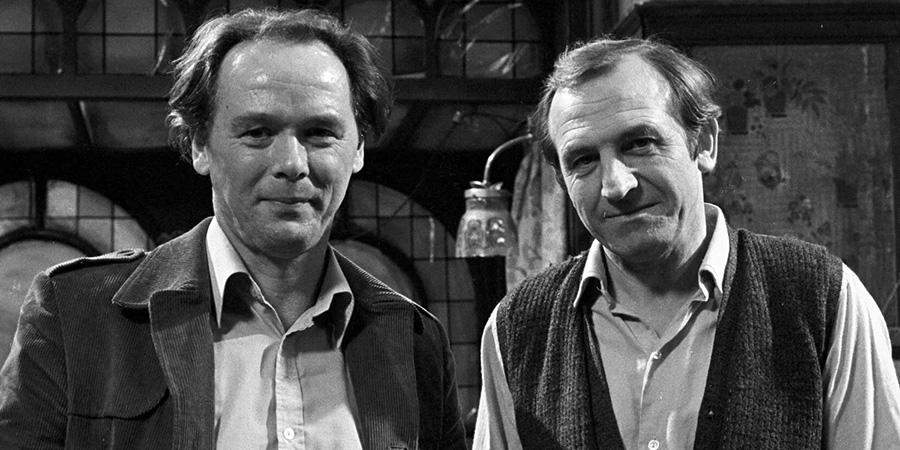
A few tweaks were made. 'Rooksby' became 'Rigsby' after a real-life landlord called Rooksby complained: Chappell settled om 'Rigsby' after consulting a phone book. Chappell also took the opportunity to change the name to the now-familiar 'Rising Damp', a title which reflected the dingy surroundings of Rigsby's premises all too well.
"How can you have rising damp in the attic?" argued Rigsby unconvincingly in the pilot episode. "You're higher than the crows up there! It should be very healthy, like Switzerland."
Richard Beckinsale also now joined the cast, replacing Paul Jones (who had bowed out) in the newly created role of Alan Moore. Beckinsale was already familiar to audiences for his performance opposite Paula Wilcox in Jack Rosenthal's early sitcom The Lovers (1970-71). As it turned out, Rising Damp's September 1974 pilot episode went out in the very same week that Beckinsale made his debut in the second episode of another new sitcom, Porridge: he was forced to wear a wig in order to cover up the unfashionable cropped haircut he'd received to convincingly play convict Lennie Godber.
You probably know the rest of the story. The pilot was a success, being followed by four series (until 1978) and a film version (which arrived rather belatedly, in 1980). The series was an enormous success in its day and remains one of the most successful British sitcoms ever made. Rising Damp is now half a century old and clearly very much rooted in the era in which it was made. So why on Earth would anyone want to watch it today?
One reason is the perfect marriage achieved between Eric Chappell's writing and the performances delivered by the exceptionally strong cast. Although Chappell would become a prolific playwright, most critics agreed The Banana Box was rather lacking in drama as a stage production. Like Ever Decreasing Circles, Fleabag and even Mrs. Brown's Boys years later, the play would make the successful translation from stage to screen.
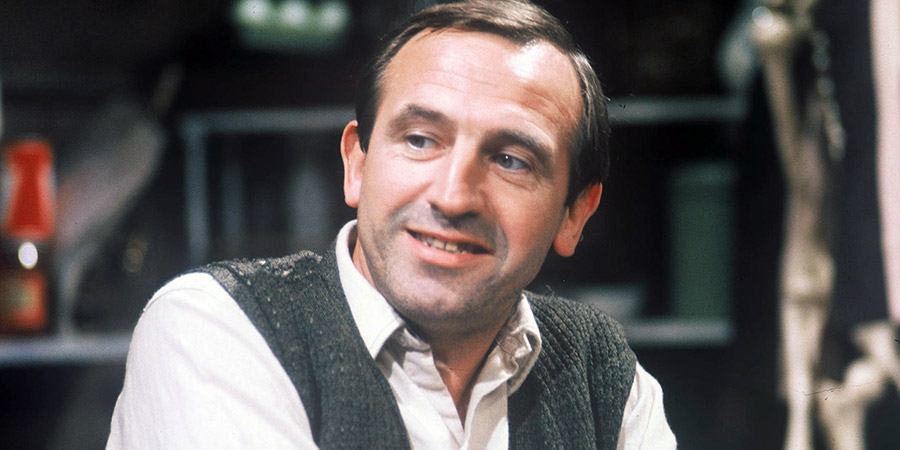
The character of Rupert Rigsby, for example, remains a towering achievement; a comedy creation every bit as memorable as Basil Fawlty or Frank Spencer in that decade, or Del Boy Trotter, Victor Meldrew or David Brent in the years since. And like some of the aforementioned, Rigsby is in many ways a classic sitcom monster: a racially prejudiced bigot who is happy to keep his tenants in substandard accommodation:
"I know it looks small - that's the heavy wallpaper," he remarks to Alan in the pilot. "I should have used paler colours. Look at it: functional, with just a hint of luxury... There's nothing between this house and the Urals. You're breathing the same air as the Tartars up there and look how long they live. I should charge you extra."
He also lusts after spinster tenant Ruth Jones - Rigsby's frequent wavering appeals to "Miss Jones" are the closest thing Rising Damp has to a catchphrase - and other younger women; and he only seems to feel true affection towards his pet cat, Vienna. In real life, the cat used proved notoriously difficult, who most of the cast and crew struggled to work with and whom Rossiter personally disliked. But, for all his many flaws, Rossiter's performance somehow manages to give the deeply tragic Rigsby enough charm to make him extremely watchable throughout. It is interesting to note that Chappell occasionally had to invent new dialogue for Rigsby at the last minute in order to keep up time, such was Rossiter's tendency to deliver his lines at breakneck speed.
The pilot also introduces us to Philip as he joins Alan and Ruth as one of Rigsby's unfortunate tenants for the very first time. Still only twenty-three at the time Rising Damp first aired, Warrington would be the only person aside from Rossiter to appear in all 28 episodes of the sitcom as well as the 1980 film. It was, of course, the story of a bogus African prince which had first set Eric Chappell on the road to Rising Damp in the first place. Despite this, it is never revealed definitively whether Philip is lying about his princely origins or not during the run of the series. Yet as viewers we can be sure he is. It soon becomes clear only someone like Rigsby would be so easily duped by Philip's tall stories about African folklore. Philip clearly has the measure of his landlord early on. Deliberately or not, Warrington delivers his many of his lines with the faintest hint of a smile just discernible on his lips.
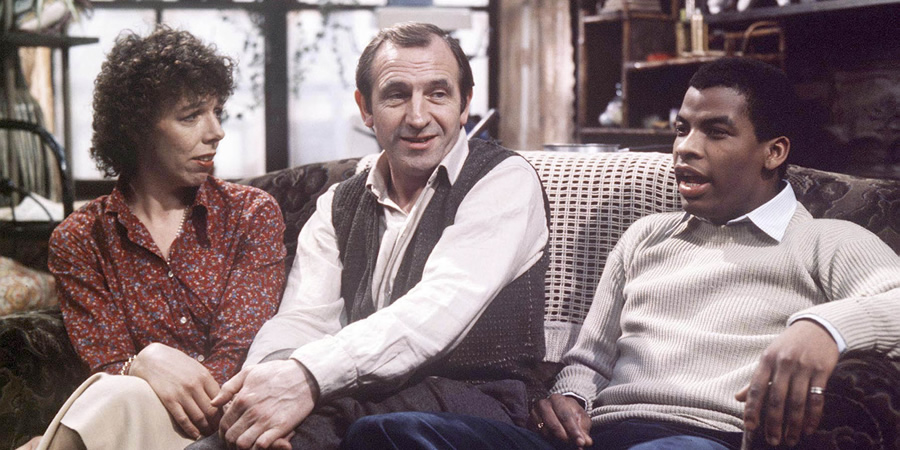
Rigsby attempts to belittle Philip, partly because he is, in most respects, everything Rigsby wishes he could be himself. Philip is well-spoken, handsome, (supposedly) aristocratic and young. He is attractive to women in a way Rigsby could never hope to be. In particular, Philip is a strong source of interest to the current object of Rigsby's lust, Miss Jones; although sadly for her, he is not much more interested than she is in Rigsby. In short, Philip personifies the perfect English gentleman far better than the sneering landlord dressed in threadbare cardigans ever could.
A student, Philip is introduced to the house by Jones, who works as an administrator at the university. Sensing Rigsby's likely prejudices, Miss Jones tactfully omits mentioning Philip's race to her landlord. His first appearance and the revelation, to Rigsby's horror, that Philip is in fact a black man was enough in itself to unleash a gale of audience laughter in 1974.
At this point, we should perhaps address the elephant in the room. Aspects of Rising Damp may sit uncomfortably with some viewers today. While it is true that the bigoted Rigsby is more often the butt of the joke than Philip is, it's also true that Philip is often the victim of racist jibes and the audience is sometimes expected to laugh at them. Another episode in which Alan reacts with suspicion to an actor (played by Peter Bowles) whom he wrongly assumes to be homosexual should also be watched with a view as to the context of the time in which it first aired. Thankfully, Rising Damp benefits from a strong enough cast that it works brilliantly anyway. Unlike some less distinguished sitcoms of the era, the show never relies on prejudice for its humour.
The role of Philip was also a (sadly rarely) good, well-rounded role for a black actor to play. He certainly never feels like a racial stereotype. As Eric Chappell put it, "Philip always got the better of the exchanges with his landlord. Don would never have agreed to play the part if he felt it was patronising". Don Warrington himself observed: "I never felt any discomfort about [playing the role] because Rigsby held views that were pretty common. Lots of people had those prejudices so it wasn't anything new to me. What was new was that Philip was a response to it, and the fact that Rigsby's apparent dislike of Philip is through jealousy. He wanted to be like Philip, because Philip seemed to have all the things Rigsby was desperately struggling for: Miss Jones included, of course."
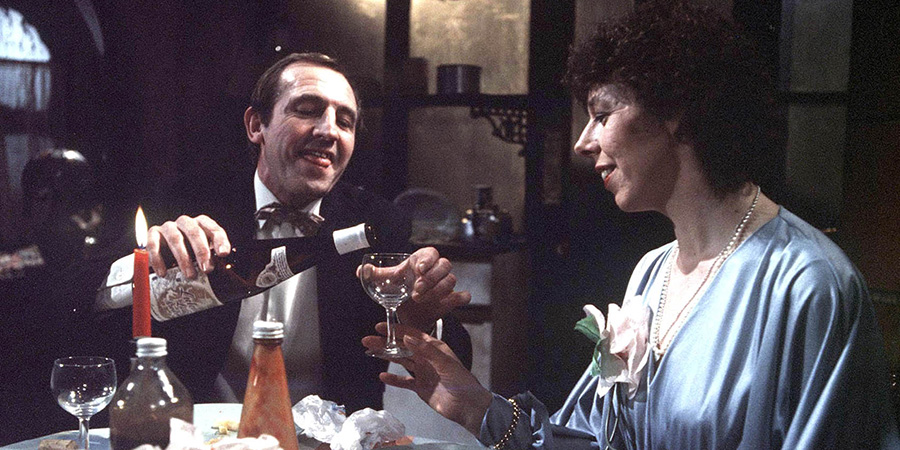
Although always careful to keep things formal (she is always "Miss Jones" to him, never Ruth), Rigsby makes little real attempt to conceal his desire for his longest-serving female tenant. Miss Jones thus spends most of her time fending off the lustful advances of her sex-starved landlord while always remaining charming enough to ensure that he doesn't resort to any retaliatory action, such as cutting her water off. Rigsby's frustration isn't eased by the realisation that she is strongly attracted to Philip - and indeed seems prepared to throw herself at almost any man who isn't Rigsby.
In reality, although they were both professional enough to ensure the creation of a marvellous chemistry between Miss Jones and Rigsby on screen, it is rumoured Leonard Rossiter and the classically-trained Frances de la Tour did not get on with each other. He was, by all accounts, often a difficult man to work with: a brilliant actor but also a demanding, exacting, very intimidating perfectionist who, as the cliché goes, didn't suffer fools gladly. "He was a hard taskmaster," admitted Eric Chappell. "He gave 100% and expected everyone else to do the same."
The differences here, however, seem to have been largely political: Frances de la Tour was a socialist member of the Workers' Revolutionary Party while Rossiter was a dyed-in-the-wool Conservative. And these were highly politicised times: similar differences of opinion between cast members had almost led to the collapse of Last Of The Summer Wine just a year or two earlier. This time the two actors kept any tensions beneath the surface, although they were reflected in the Series 1 finale, Stand Up And Be Counted, in which Rigsby's dogged determination to support the Conservative Party provokes the ire of everyone else in the house, who want Labour to win.
"What about the Three-Day-Week?", remarks Alan of the recent industrial chaos that had brought down Edward Heath's Tory Government. "I don't know what you're complaining about: the five day one never suited you!", Rigsby retorts.
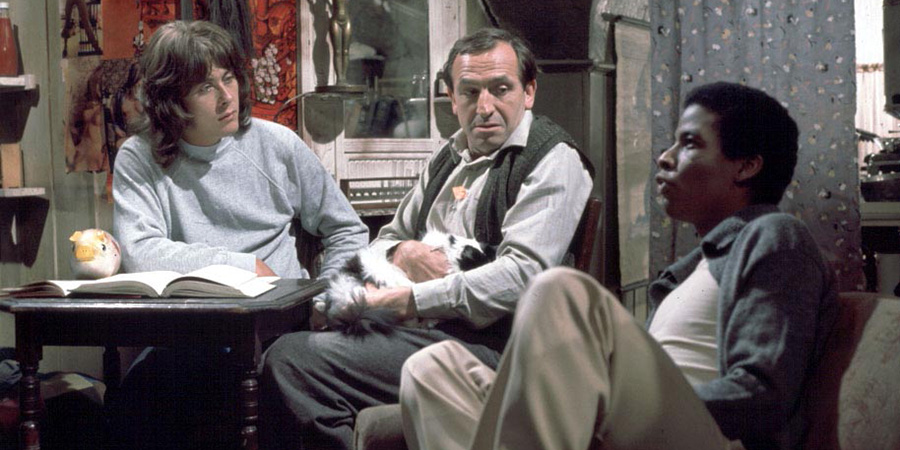
Alan is a long-haired medical student. Somewhat naïve and sexually immature, he is nevertheless an amiable character who naturally finds himself in frequent conflict with his mean-spirited landlord. He quickly befriends Philip, just as Richard Beckinsale soon befriended Don Warrington in real-life. Thanks to The Lovers, Beckinsale was the only member of the cast to have solid prior sitcom experience. Rossiter had made two memorable appearances in Steptoe And Son (as both an escaped convict and a crook who sells the Steptoes lead that turns out to have been stolen from their own roof), but Rising Damp was his first recurring TV role since appearing in eight episodes of the BBC's police drama Z Cars in 1963.
Beckinsale fitted into the cast perfectly. Less intimidated by Rossiter than most, the two actors treated each other with a mutual respect. Many accounts also suggest he was a calming presence on set, often defusing tensions when the atmosphere threatened to became too heated.
The series proved to be a huge success and likely still stands as the most critically lauded comedy production in ITV's history. High quality actors of the era such as Peter Bowles, Andrew Sachs, George Sewell, Ian Lavender, David Swift, Joan Sanderson and Roy Barraclough can all be spotted in occasional episodes. Young actress Gabrielle Rose played a notable role as Brenda, an adult life model and new tenant, when Frances de la Tour took a brief hiatus from the show during the second series, while Derek Newark played another unusual resident, Spooner: a bad-tempered former Red Devil turned professional wrestler.
Frustrated at still playing youthful roles as he entered his thirties, Beckinsale opted to "do a John Cleese" and dropped out of the show's fourth series (Cleese famously pulled out of the fourth series of Monty Python). Oddly, for all his popularity, Beckinsale's absence had no obvious negative impact on the show, now reaching audiences of some 18 million each week. At this point it was decided to bring the series to an end on a high. "I thought the subject was exhausted," said Chappell, "and so was I." All the main cast were happy to move onto other things. The final episode brought the comedy to a proper conclusion in May 1978.
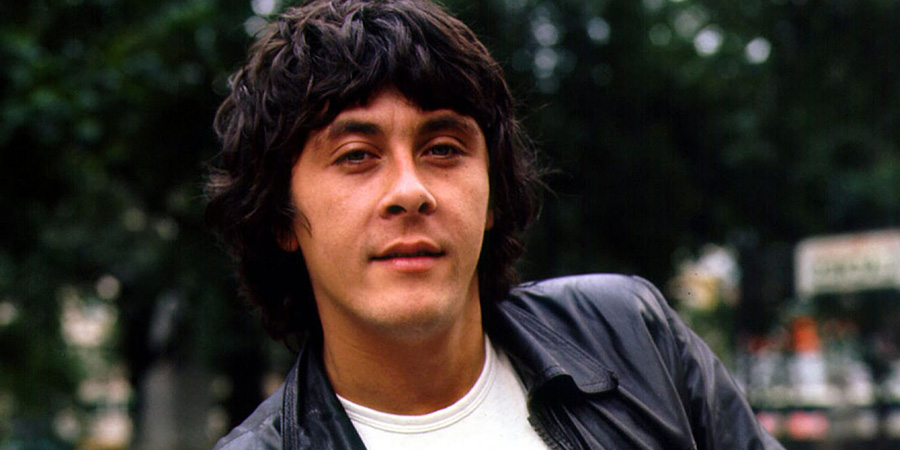
By now Porridge had also ended and Beckinsale was involved in both the big screen version of the prison sitcom and its small screen sequel, Going Straight. But his life was about to be cut brutally short. He suffered a fatal heart attack in March 1979, dying at the age of only 31. (Rossiter, in turn, would also die young, backstage at the Lyric Theatre, in 1984. He was 57.)
Beckinsale's absence was keenly felt during the 1980 Rising Damp film. Another sitcom actor of the time, Christopher Strauli, was given the thankless task of effectively replacing him. It's an odd production: essentially a retread of a number of earlier episodes' pilots, but with a somewhat different feel established right from its funk-tastic opening theme:
The film has dated poorly and is now held in low regard, but was quite successful at the time of its original release. Writer Chappell admitted: "I wasn't paid a fortune, so didn't feel I had to give it much of my time. The film was basically a regurgitation, with three-quarters of the material coming from the television series."
The small screen Rising Damp nevertheless remains a triumphant landmark in the history of British sitcoms. All four members of the main original cast became - or cemented their status as - stars as a result of the show. With the possible exceptions of Richard Beckinsale's role as Godber in Porridge and Frances de la Tour's appearance as Madame Olympe Maxime in Harry Potter And The Goblet Of Fire, all remain more famous for Rising Damp than for anything else. Eric Chappell, meanwhile, went on to pen a slew of other successful sitcoms, including Only When I Laugh, Duty Free and Home To Roost, before his death in 2022.
Today, we are left with a rich legacy of 28 episodes, easily enough to watch comfortably at the rate of one episode a day over the course of a month, or if you're in a hurry, during an intense but very rewarding binge-watch within a day. So, 50 years on, if you've not yet sampled the word of Rising Damp, now's your chance. For all the inconveniences visited upon Rigsby's tenants, your own stay is sure to be an enjoyable one.
Where to start?
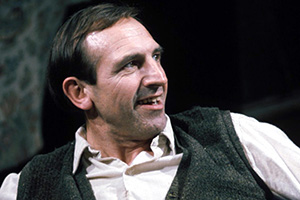
Series 2, Episode 1 - The Permissive Society
This opener for the second series serves as the perfect place to start. As an unhappily separated middle-aged man who came of age during the Second World War, it is clear Rigsby envies the newly liberated younger generation who he suspects (probably correctly) are getting far more sex than he ever did. He is thus delighted to learn in this episode that young Alan is still very much a sexual innocent: "You're a member of the permissive society!" a disbelieving Rigsby exclaims, "You're supposed to know where the erogenous regions are!" Alan responds: "I know where the Himalayas are, but I've never been up them!"
Help us publish more great content by becoming a BCG Supporter. You'll be backing our mission to champion, celebrate and promote British comedy in all its forms: past, present and future.
We understand times are tough, but if you believe in the power of laughter we'd be honoured to have you join us. Advertising doesn't cover our costs, so every single donation matters and is put to good use. Thank you.
Love comedy? Find out moreRising Damp - The Complete TV Series Plus The Movie

Includes all 28 episodes from the TV series, plus the movie.
A genuine British comedy classic, the popularity of Rising Damp remains unparalleled some 25 years after the first transmission. Detailing the day-to-day events at Rigsby's dingy boarding-house in which the landlord from hell, Rupert Rigsby prowled around his dilapidated eyrie, poking his nose into his lodgers' affairs.
In the feature length movie, Rigsby (Leonard Rossiter) is still intending to make Miss Jones (Frances De La Tour) his wife but she's far more interested in the intellectual and athletic Philip (Don Warrington)...
First released: Sunday 31st August 2008
- Distributor: ITV Studios
- Region: 2
- Discs: 5
- Catalogue: 3711529413
![]() Buy and sell old and new items
Buy and sell old and new items
Search for this product on eBay
BCG may earn commission on sales generated through the links above.

